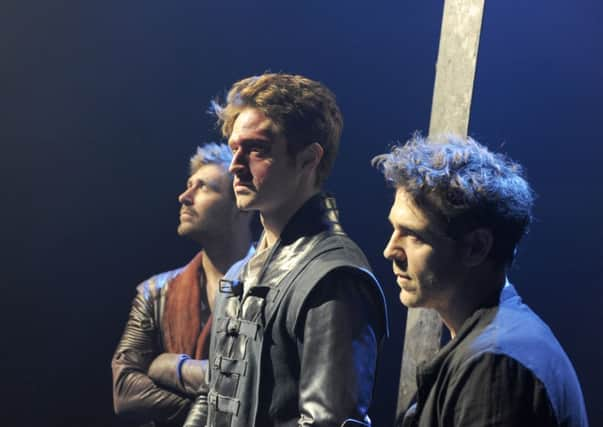Comment: Political debate may return to the Fringe


ALMOST a year after the new Edinburgh International Festival director, Fergus Linehan, revealed his hand for 2015, the big beast of the Fringe is slowly stirring into life.
It seems odd that, while the world’s biggest art festival has generated next to no coverage since last year’s shows drew to a halt, Mr Linehan has been regularly banging the publicity drum.
Advertisement
Hide AdAdvertisement
Hide AdIn the 12-month cycle of the Fringe, April has traditionally been one of the most fraught for venue operators, promoters, companies and performers; a nerve-crunching run-up to the official programme deadline.
Imagine, then, how it must be for anyone who has set out to work on a piece of theatre tackling the political landscape in Scotland or indeed the wider UK – especially when the general election will not be held until after that Fringe programme deadline.
It must be difficult enough grappling with the potential outcomes in Westminster without trying to imagine what kind of political ripples will still be felt in the streets of Edinburgh come August. Of course, I don’t actually know how many – if any – such political plays will take to the Fringe stage. But I’d be amazed if there were none, especially given the appetite for political theatre in the city last summer.
The big blockbuster was, of course, The James Plays, which collectively drew more than 30,000 people to the Festival Theatre for two-and-a-half weeks. The many nods to the modern-day political debate in Scotland were inescapable despite the 15th century setting.
Two of the more openly partisan productions, Alan Bissett’s The Pure, The Dead and The Brilliant, and the David Hayman-starring play The Pitiless Storm, also helped promoter Tommy Sheppard – who later decided to stand for the SNP in the forthcoming election – record his best ever box office figures at the Assembly Rooms.
But for many, the most effective show was also the simplest, with Gabriel Quigley playing a fraught foreign minister about to face the world’s media after a vote in favour of Scottish independence. Spoiling went on to become one of the biggest hits at the Traverse – winning a Scotsman Fringe First award – and was such a success it was revived just before the referendum.
For me, the most memorable political show of the year in Edinburgh was also the most subtle, transforming the Scottish National Portrait Gallery into “a place of radical provocation,” as one critic put it. Dear Scotland, staged by the National Theatre of Scotland just over a year ago, imagined what some of those figures depicted in the gallery would have to say today.
Created by a host of leading writers, it was a memorable portrait of the independence debate – because it steadfastly refused to take sides.
FOLLOW US
SCOTSMAN TABLET AND MOBILE APPS